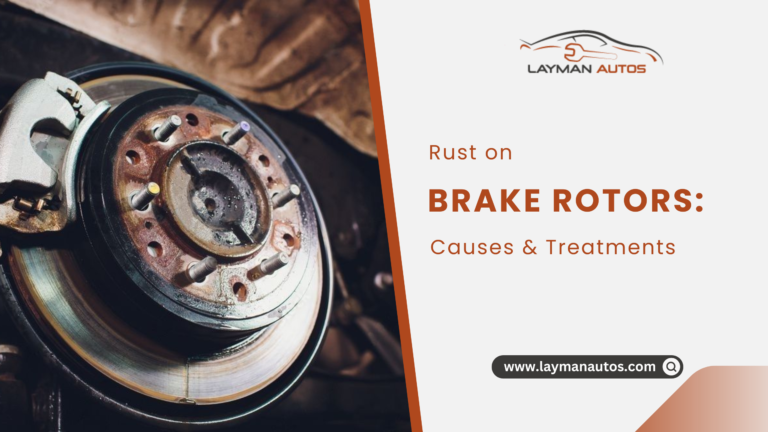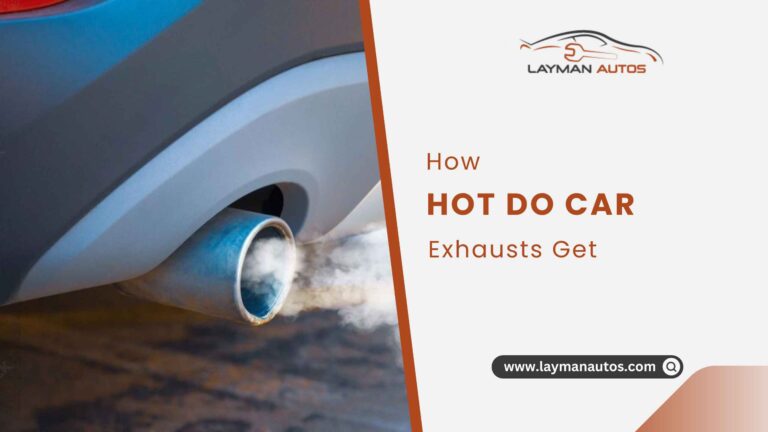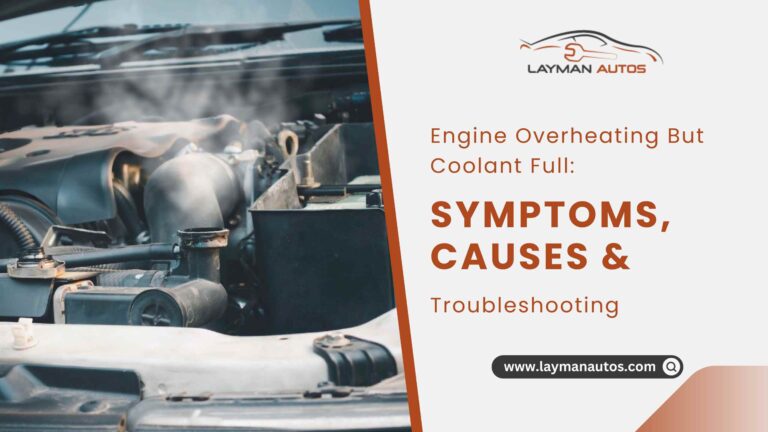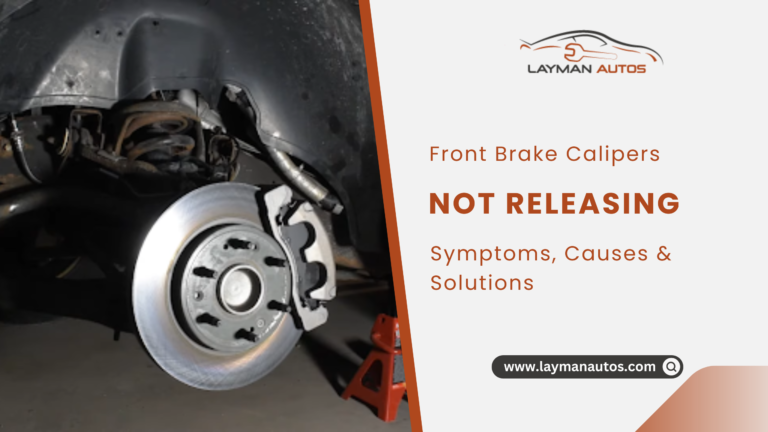Why Does My Engine Oil Get Dirty So Fast? Causes & Methods
Tired of frequent oil changes? and worried to know why does my engine oil get dirty so fast? It is certainly frustrating to deal with dirty oil by hiring expert oil change services. The dirty old oil in an engine is obviously alarming. However, dirty engine oil isn’t always a warning indicator if you get it changed timely.
First, we need to understand how engine oil works and what factors contribute to decreasing fuel efficiency and making the oil dirty. Despite checking engine oil regularly, engine heating is one of the apparent signs of dirty engine oil. In this article, we will discuss the causes and possible methods to solve these problems, including overheating engine heat and poor performance caused by dirty oil.
Causes of Rapid Oil Discoloration
Despite being relatively new, engine oil might sometimes look old, chalky, and maybe even faintly black when you pull out the dipstick. Changes in the oil’s appearance are a natural part of the maintenance process and are not always indicative of the oil’s health. However, if the contaminated oil has debris, then it might be alarming and considered necessary for you to visit some oil change store.
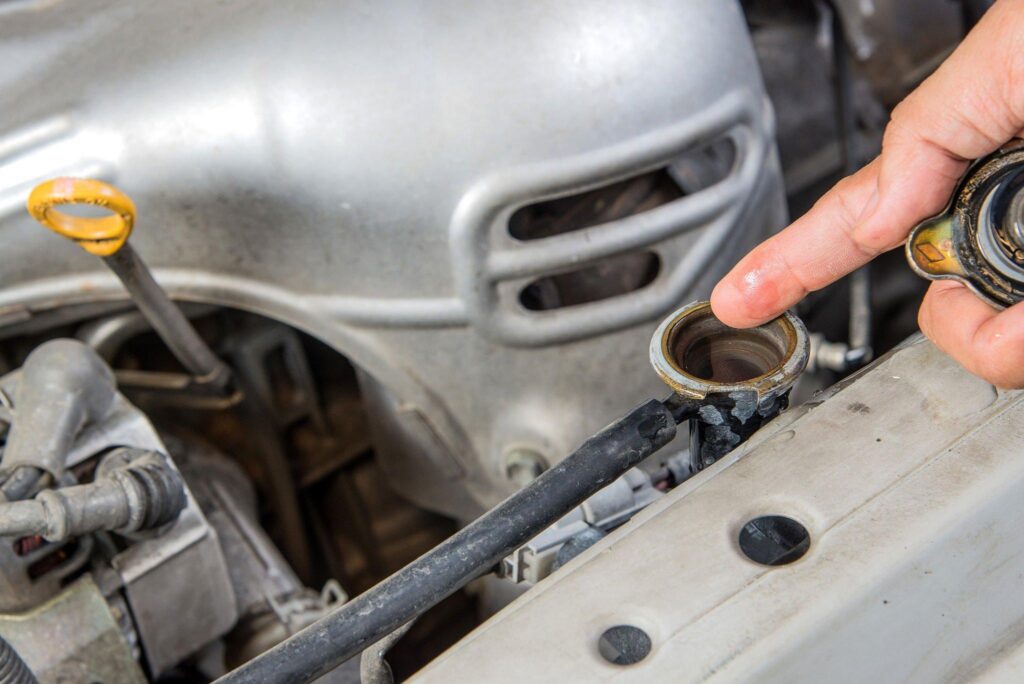
Rapid contamination is an indicator of a more serious issue within the engine, which might have an effect on the vehicle’s performance. An oil change is recommended every 7,000 miles. The oil in a combustion engine goes through a lot of changes since it operates in a very hot, oxygen-rich environment where the engine is continually releasing a wide variety of gases and particulate materials.
All of its properties, from colour and texture to lubrication and viscosity, suffer. Engine oil wear can be hastened by a number of factors, although they are very uncommon. These reasons include:
1. Engine Oil Getting Old:
The oil in the engine is growing old, which is problematic since engine oil is more than just oil; it’s also a mixture of friction lubricators, viscosity-supporting agents, and corrosion inhibitors. The oil’s color and sheen of newly applied engine oil are typically amber.
However, physical and thermal changes begin to take place in the fluid as it matures, comes into contact with hot components, and goes through the friction phase. Over time, it begins to show signs of grime. The oil also alters in hue and consistency over time. So it makes sense that you want to get a new one.
2. Combustion Process:
The fluid’s richness and vitality are diminished during combustion, and the colours become darker. Additionally, the fluid’s viscosity, lubricating qualities, and rust-inhibiting powers are negatively impacted. This procedure takes a while, often 3-6 months, which is why it is advised to change the oil in your engine regularly.
3: Engine Getting Too Hot
To a large extent, engine oil deterioration is triggered by heat. When operating normally, an engine will attain temperatures between 200 and 230 degrees. Overheating engines, however, can cause these temperatures to soar to dangerous heights. Reduced ventilation to the engine compartment and an assault on the viscosity of the oil itself due to the engine’s increased operating temperature.
4: Oxidation Process:
Oxidation speeds up over time, which leads to the chemical breakdown of motor oil. Over time, engine oil loses its lubricating properties due to the interaction of heat and oil molecules in the presence of oxygen. This Oxidation Process, however, is accelerated in some cases.
5. An Outdated Oil Filter:
The oil filter in your car removes debris and other particles from the engine oil, but it loses effectiveness with time. Because of this, filth will inevitably accumulate in the motor oil. This also indicates that an oil filter change is needed.
6: Waiting Too Long for an Oil Change:
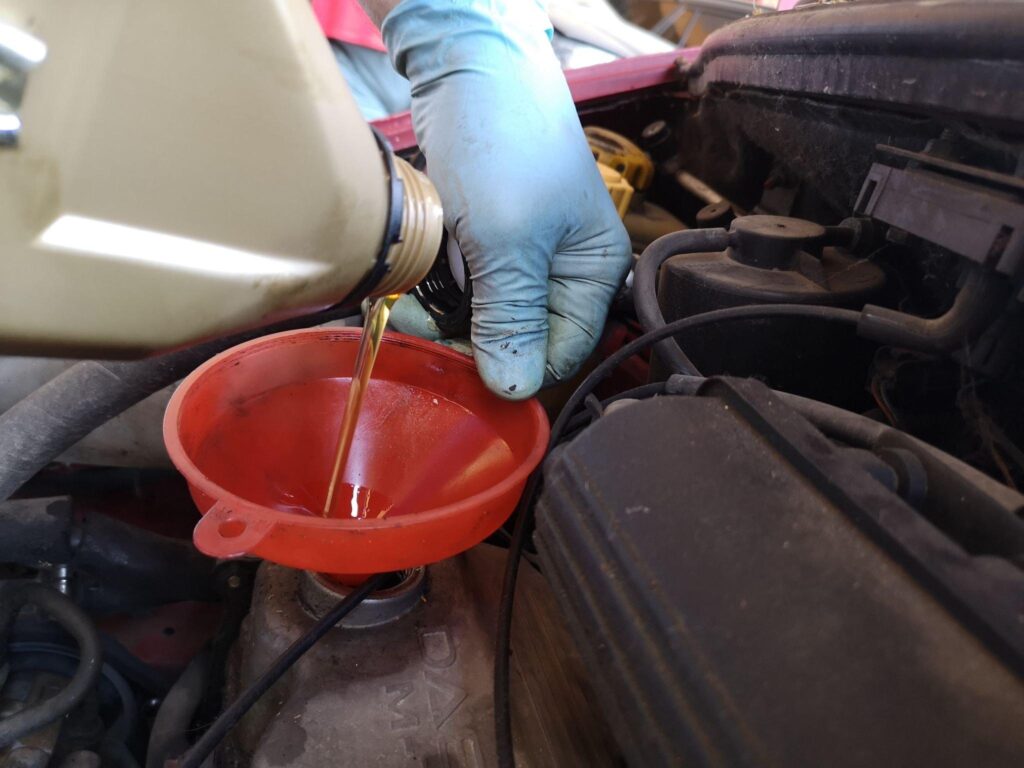
If you put off getting a dirty oil change for too long, the engine will get filthy. Furthermore, the delay may cause engine oil to get contaminated since the oil filter has not been replaced in the interim. This is the primary cause of the accumulation of dust in your engine and then this process continues. More often than any other component, your vehicle’s engine oil and oil filter need to be changed to keep your motor running smoothly.
Dirty Engine Oil Symptoms:
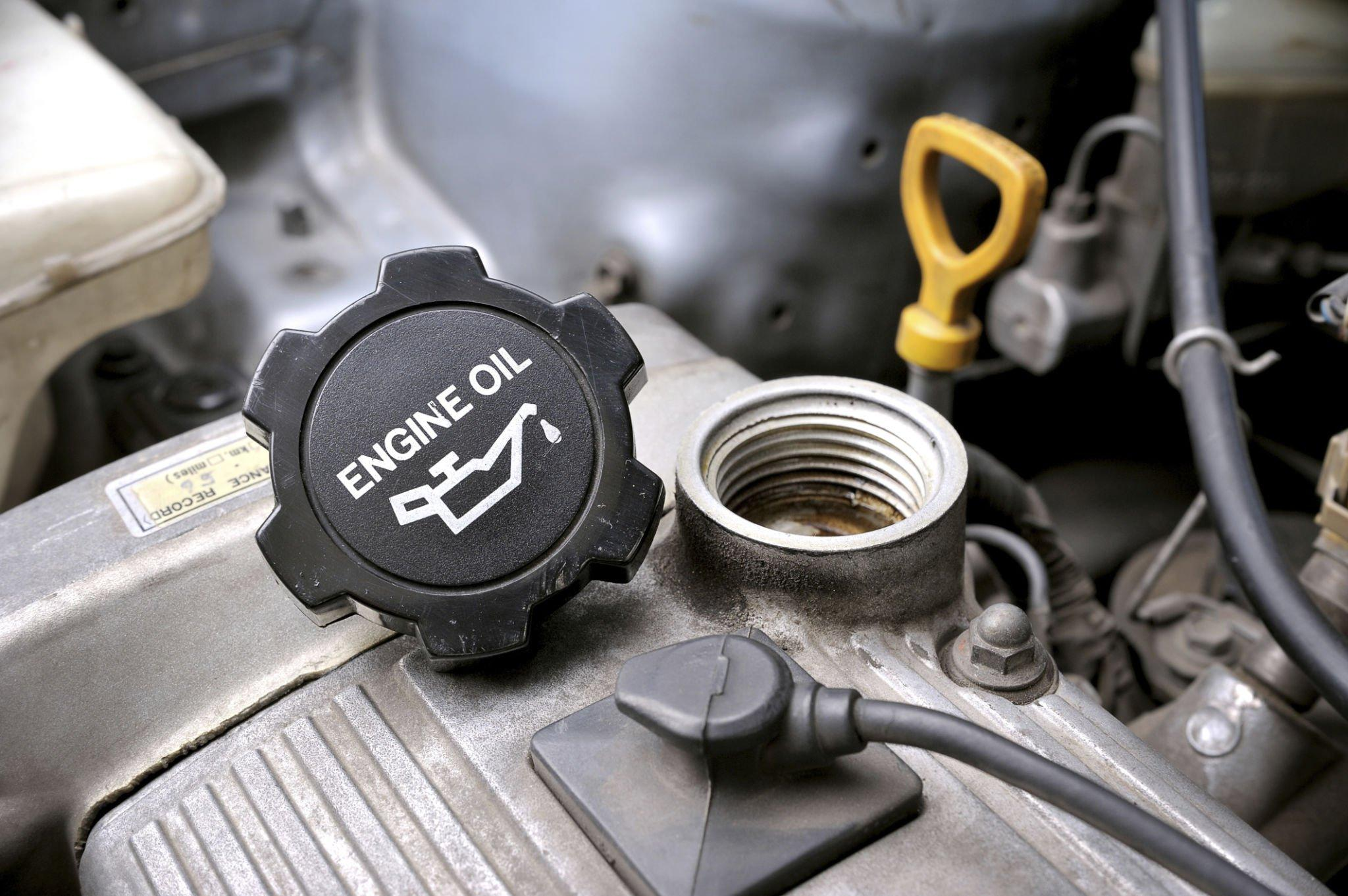
For oil to get grimy is to be expected for every vehicle. The engine’s efficiency, performance, and fuel economy can all suffer from unclean, sludgy oil. If you’re searching for why does my engine oil get dirty so fast? then go through these Dirty Engine Oil Symptoms.
If your car engine oil is unclean, your mechanic will know it. However, the colour of the oil can also be a good indicator of whether or not something is wrong. Examples of such indicators include:
1. Use a Dipstick to Find:
It’s critical that you regularly inspect the oil level and oil colour using the dipstick. If you want to make sure your new oil is clean, you should check it at least once a week using a dipstick.
2. Tiered Warning System Light or Oil Change Warning Light
The vehicle itself will be the first to signal that there is a problem with the oil. If your car’s oil level is low, the oil change indicator light will come on. Check the dipstick to discover what’s going on. The malfunction indicator light will turn on if things get really bad. That’s your automobile trying to tell you that the engine might blow up from worn components or a lack of oil and that you need to take immediate action.
3. The Roar of the Engine
Noise emanating from the engine is another indicator that your oil is filthy. Overall, your car’s performance will suffer. If your oil isn’t doing its function, you’ll notice an increase in engine noise. In extreme circumstances, your engine may even make banging or rumbling noises as it slowly destroys itself due to a lack of oil.
4. Oily Odour Inside the Vehicle
The presence of an oily odour within your automobile usually indicates a leak somewhere which is a bad sign. Overheating is another possible cause of the gas or exhaust smell coming from the car. In either case, you should not delay in setting up a maintenance routine.
5. Observing A Smokier Tailpipe
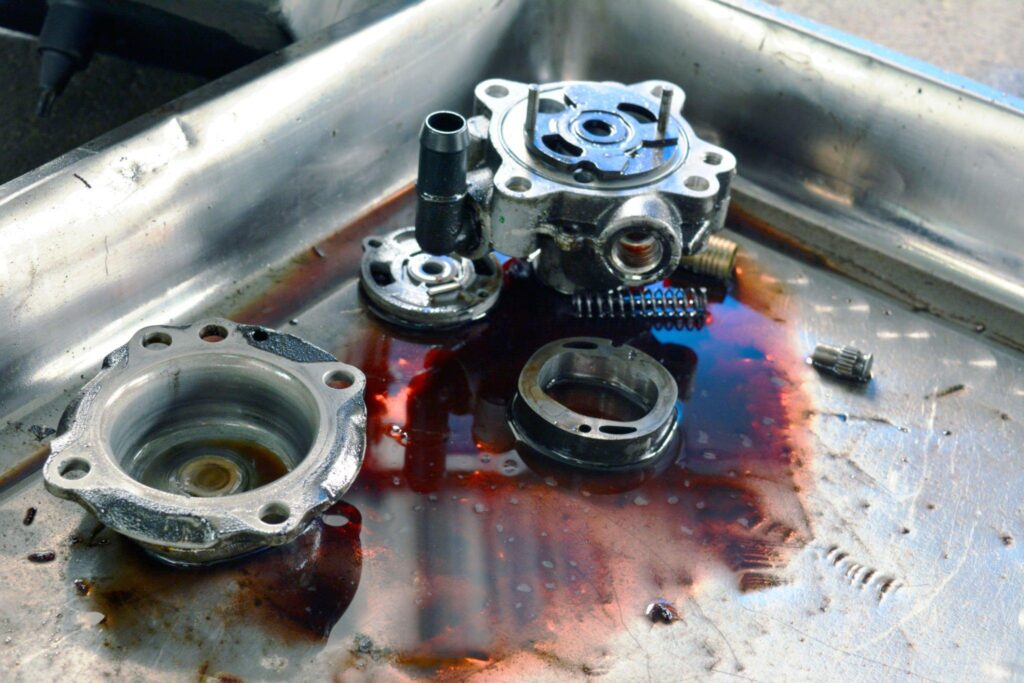
It’s normal for a small amount of clear smoke to emerge from the tailpipe at all times; when this begins to significantly increase, it’s time for an engine inspection. There might be a leak in the oil system or broken engine parts.
6. Excessive Travelling
Think about getting an oil change sooner than usual if you’ve put a lot of miles on your car in the past month. While the interval between oil changes may vary by vehicle, the general rule is every 3,000 miles or three months.
Changing the oil on a brand-new car is recommended every 6,000 miles or six months. In order to find out how to properly operate your vehicle, refer to the manual. Paying attention to high-mileage oil may be a good option for older cars.
Conclusion:
Have you had your oil changed lately or not? Your car would die without oil. Whether or not it’s time for an oil change, you should get your car inspected if you notice anything unusual about the oil’s colour, level, or smell. Put an active eye on these minor issues and fuel efficiency if you want your vehicle to perform well. It is possible for an oil mixed with tiny particles and atmospheric contaminants to cause severe damage to your car.
One of the best ways to extend the life of your vehicle and keep it running smoothly is to keep up with regular oil changes. If your engine has the proper amount and quality of oil, it will wear down more slowly, requiring fewer repairs over time. Operating your vehicle’s engine when it has tainted oil is one of the worst things you can do to it. Therefore, get it examined by some trained auto technician since dirty oil damages engines and is completely ineffective.
Frequently Ask Questions
1. How come my car’s engine uses oil so quickly?
Apparently, oil has made its way into the combustion chamber of your vehicle and is being burned inside. Due to malfunctioning engine parts, oil is allowed to enter the combustion chamber, where it is burned. The car’s piston rings, valves, gaskets, and other parts might be failing due to wear and tear. Oil can also flow externally at times.
2. Can synthetic oil become soiled?
Because of the high temperatures and pressures inside the engine, oils that are manufactured from petroleum will degrade or break down over the course of time. As a direct consequence of this, the chemical composition of the oil is altered, and it becomes polluted. After a few thousand kilometers, oils that are manufactured from petroleum begin to degrade and need to have their levels replenished.


